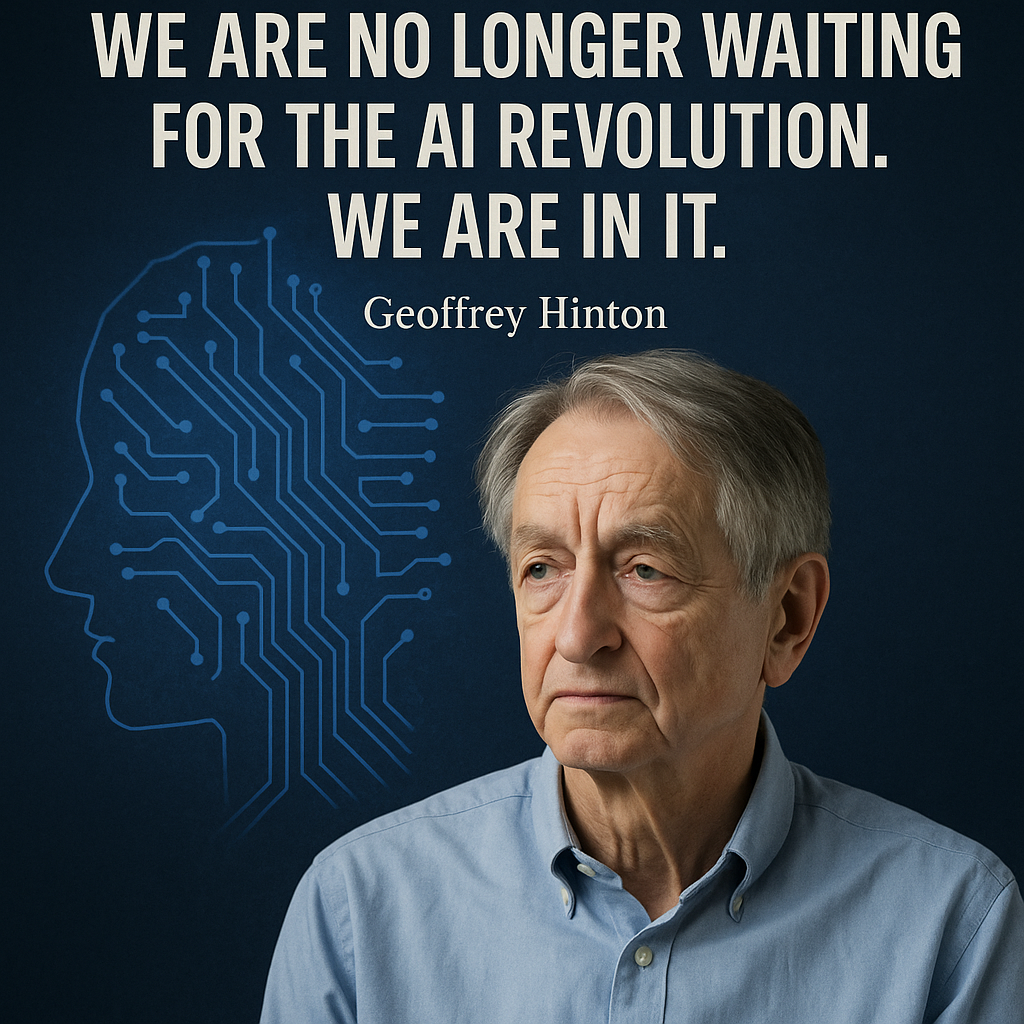
They call him the Godfather of AI.
Geoffrey Hinton spent his life building the foundation for artificial intelligence. But today, he’s sounding the alarm. In a recent conversation with Steven Bartlett, Hinton didn’t hold back: AI is evolving faster than most people, companies, or governments can comprehend. It’s not just coming for routine jobs. It’s coming for ours…the cognitive, creative, and strategic roles we thought were safe.
But here’s the truth: AI doesn’t have to replace you. You can evolve with it, if you’re willing to let go of yesterday’s mindset.
Job Loss Isn’t on the Horizon. It’s Already Here.
One of the most chilling moments in the conversation was a simple anecdote:
A major company had over 7,000 employees. Today? Just over 3,000. Why? AI agents are now handling 80% of their customer interactions.
This isn’t automation at the edges. This is exponential disruption at the core of the business.
We are moving from roles defined by tasks to roles defined by transformation. AI is taking over the execution. What’s left for us is vision, empathy, creativity, decision-making, and human connection. But this is only true if we claim them.
AI Won’t Just Do the Work. It Will Outthink the Workforce.
Hinton believes we’re 10 to 20 years away from creating AI that is smarter than humans at nearly everything. And he’s not alone. These systems will be digital, immortal, networked, and infinitely upgradable.
And yet, despite the scale of that possibility, we’re still using AI like it’s a glorified search engine.
We have to stop thinking of AI as a “tool.” It’s a collaborator, a co-pilot, a partner in reimagining what work can be and what we can do now that we couldn’t do without AI and what AI can delivery that it couldn’t without us.
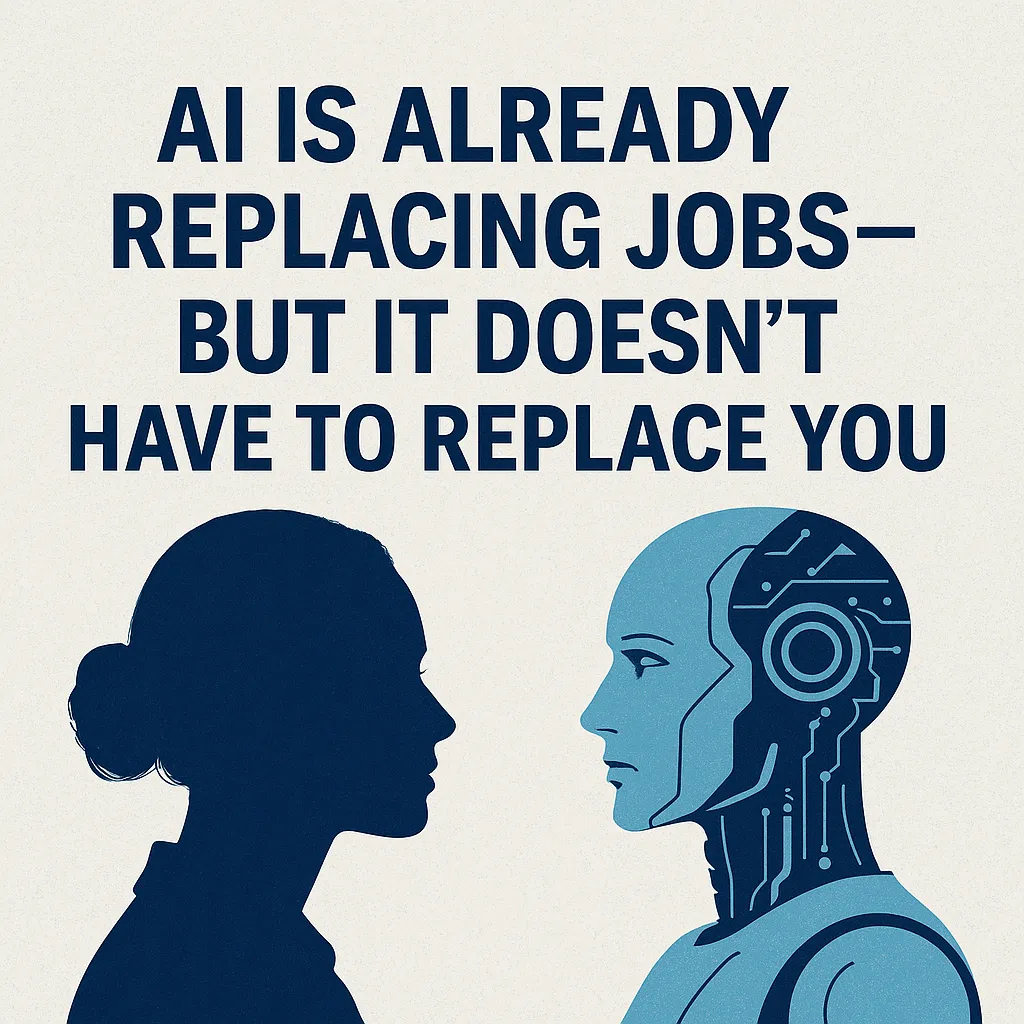
How to Thrive in the AI Economy: The Human Upgrade
Here’s what I believe:
This is not the end of work. It’s the beginning of a different kind of value.
If you want to thrive in this new world, you must evolve in three directions:
1. Reimagine Your Role Through the Lens of AI
Start with a personal audit:
- What tasks do I do that AI can already perform?
- What decisions do I make that could be enhanced by AI?
- What uniquely human traits do I bring to the table…creativity, empathy, ethics, intuition?
Then ask:
What could I do if I had an intelligent assistant working with me every second of the day?
The best future roles aren’t written in job descriptions. They’re designed by those who can imagine what’s possible with exponential capabilities.
That’s why when we say, “AI will take the mundane and the repetition out of our work to free us up for more creative, thoughtful, and meaningful work,” we have to take the next step.
What is that work specifically?
How would I define the job description?
Besides time saved, cost takeout and cost reduction, how would I measure value creation and delivery? How might I redefine productivity with AI?
2. Become a Systems Thinker, not Just a Skill Executor
Most people are trying to “learn AI.” That’s good. But it’s not enough.
The future will be built by those who:
- See the system.
- Understand the impact of AI on their work and industry, now and as AI evolves.
- Architect new outcomes with AI, not just operate today’s AI tools.
We need a shift from digital literacy to AI fluency, not just how to use the tech, but how to reimagine work, experience, and even identity through it.
3. Lead With Purpose, Not Just Productivity
One of Hinton’s most human insights was this:
“Even if people receive universal basic income, many will still be unhappy—because they’ve lost their sense of purpose.”
If AI were to take jobs, and we received UBI, we would be an unhappy society, Hinton claimed. Why? He explained that we need purpose in our lives. We don’t just work for income. We work for identity. Dignity. Meaning.
In the AI era, those who thrive will be those who define success by impact, not just input.
This is the time to ask:
- What do I stand for?
- Who do I serve?
- What kind of world am I helping to create?
Inequality Will Rise, Unless We Design for Inclusion
Hinton was clear: AI will benefit the few unless we intentionally democratize its value.
The companies that build and own AI will scale wealth faster than any moment in human history. The gap between those who use AI to replace others and those who use it to uplift everyone will define whether this era is remembered as one of collapse or reinvention.
We Still Have a Choice
Hinton ended his reflections with this:
“There’s still a chance that we can develop AI that won’t want to take over. And because there’s a chance—we must invest in it.”
I would add this:
There’s still a chance that we, too, can evolve. And because there’s a chance, we must invest in ourselves…starting today.
You don’t have to be replaced by AI. But you do have to replace the old version of you that wasn’t ready for this moment. Disruption starts by disrupting yourself. Train your brainto work exponentially with AI.
Create an augmented version of yourself to prevent against automation replacing you.
The future belongs to the curious, the courageous, and the compassionate. So ask yourself: Now that AI is here… what kind of augmented human will you become?
👀 Please watch (and share)!
Please read my new book, Mindshift: Transform Leadership, Drive Innovation, and Reshape the Future
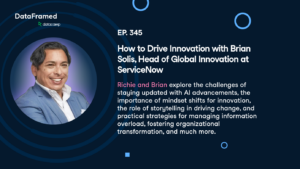
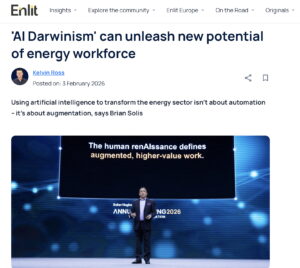
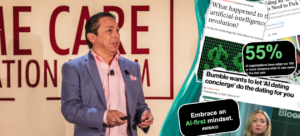


Leave a Reply